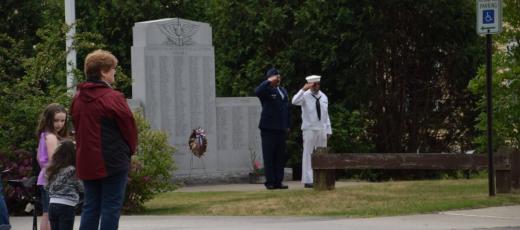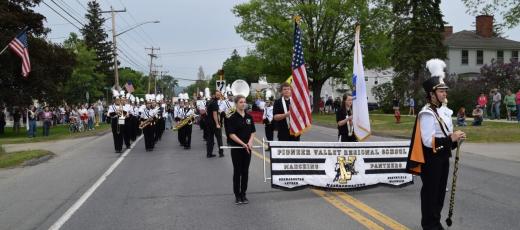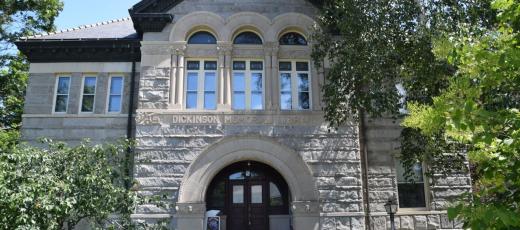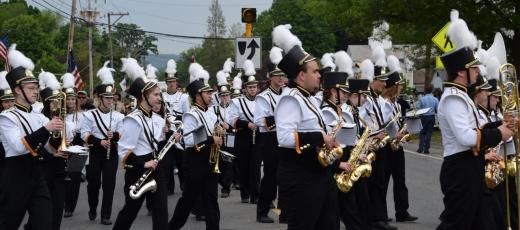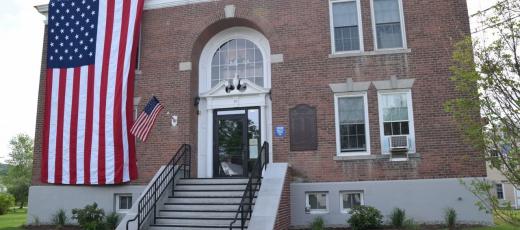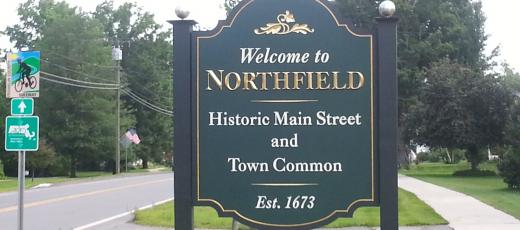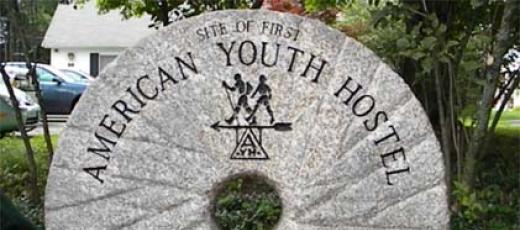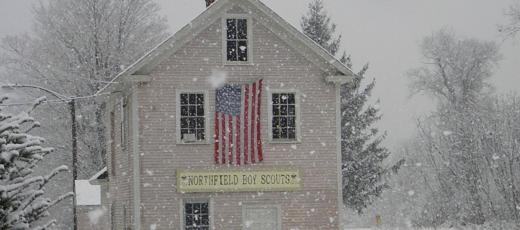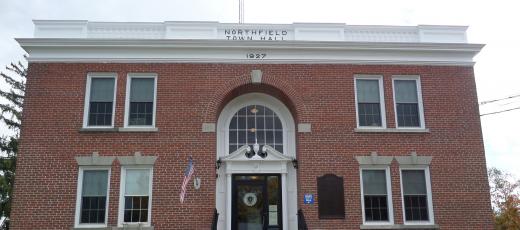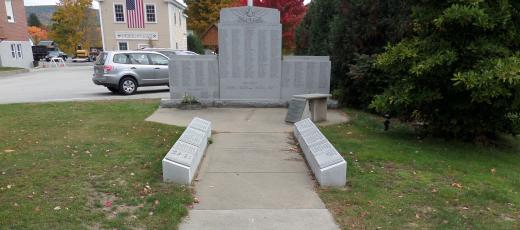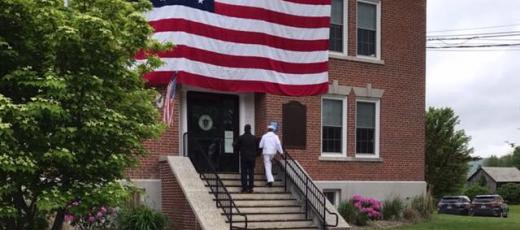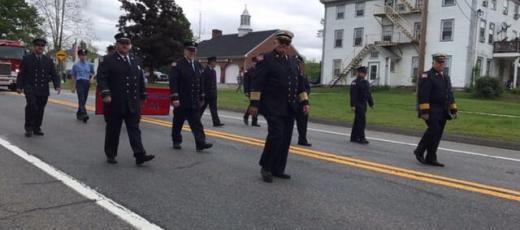Information for Boards & Committees
Upon reviewing the topics below and completing the online training, please visit the Town Clerk to take the Oath of Office within (2) weeks of appointment.
* This is required in order to vote and/or participate in meetings *
- Read The Commonwealth of Massachusetts General Law on State Administrative Procedure MGL 30A §§ 18 – 25: MA General Laws;
- Read The Attorney General’s Regulations on Open Meeting Law 940 CMR 29.00 - 29.11: The Open Meeting Law;
- Read The Attorney General’s Open Meeting Law Guide;
- Fill out the Open Meeting Law’s Certificate of Receipt for receiving links to the above-mentioned materials & return to the Town Clerk's Office and;
- Create an account online and complete both: Conflict of Interest Law Training & Receipt for Municipal Employees: Conflict of Interest Law & Training. Our office will automatically receive these from the State.
- Review (4) Checklists for Posting a Meeting Notice, Creating and Approving Minutes & Entering into Executive Session (below);
Public Body Checklist for Posting a Meeting Notice
Issued by the Attorney General’s Division of Open Government – September 25, 2017
Notice Contents
- The notice contains the date, time, and location of the meeting. G.L. c. 30A, § 20(b).
- If the meeting is a joint meeting of several public bodies, the names of all bodies meeting are listed at the top of the notice.
- The notice contains all of the topics that the chair reasonably anticipates will be discussed at the meeting. The topics are sufficiently specific to reasonably advise the public of the issues to be discussed at the meeting, including executive session topics. G.L. c. 30A § 20(b); 940 CMR 29.03(1)(b).
- The notice is printed in a legible, easily understandable format. G.L. c. 30A, § 20(b).
- The date and time that the notice is posted is conspicuously recorded on or with the notice. 940 CMR 29.03(1)(d). If the notice is amended within 48 hours of a meeting, not including Saturdays, Sundays, and legal holidays, then the date and time that the meeting notice is amended must also be conspicuously recorded on or with the notice. 940 CMR 29.03(1)(d).
Notice Publication
- The notice is published at least 48 hours before the meeting, not including Saturdays, Sundays and legal holidays. G.L. c. 30A, § 20(b).
- The notice is posted with the proper authority:
- Local public bodies – Filed with the municipal clerk, who must post it in a location conspicuously visible to the public at all hours in or on the municipal building where the clerk’s office is located, or to the municipal website if adopted by the municipality as the official method of posting notices. G.L. c. 30A, § 20(c); 940 CMR 29.03.
- State public bodies – Posted to a website, and a copy sent to the Secretary of State’s Regulations Division. G.L. c. 30A, §20(c).
- Regional public bodies – Posted in every municipality within the region, unless the public body has adopted an alternative notice posting method. G.L. c. 30A, § 20(c); 940 CMR 29.03.
- County public bodies – Filed with the office of the county commissioners and a copy of the notice is publicly posted in a manner conspicuously visible to the public at all hours in such place or places as the county commissioners shall designate for the purpose, unless the county has adopted its website as the official method for posting notices. G.L. c. 30A, § 20(c); 940 CMR 29.03.
Public Body Checklist for Creating and Approving Meeting Minutes
Issued by the Attorney General’s Division of Open Government – September 25, 2017
- Minutes must accurately set forth the date, time, place of the meeting, and a list of the members present or absent. G.L. c. 30A, § 22(a).
- Minutes must include an accurate summary of the discussion of each subject. See G.L. c. 30A, § 22(a). The summary does not need to be a transcript, but should provide enough detail so that a member of the public who did not attend the meeting could read the minutes and understand what occurred and how the public body arrived at its decisions.
- The minutes must include a record of all the decisions made and the actions taken at each meeting, including a record of all votes. G.L. c. 30A, § 22(a).
- The minutes must include a list of all of the documents and other exhibits used by the public body during the meeting. G.L. c. 30A, § 22(a). Documents and exhibits used at the meeting are part of the official record of the session, but do not need to be physically attached to the minutes. See G.L. c. 30A, §§ 22(d), (e).
- If one or more public body members participated remotely in the meeting, the minutes must include the name(s) of the individual(s) participating remotely. 940 CMR 29.10(7)(b).
- If one or more public body members participated remotely in the meeting, the minutes must record all votes as roll call votes. 940 CMR 29.10(7)(c).
- Executive session minutes must record all votes as roll call votes. G.L. c. 30A, § 22(b).
- The minutes must be approved in a timely manner. G.L. c. 30A, § 22(c). A “timely manner” will generally be considered to be within the next three public body meetings or within 30 days, whichever is later, unless the public body can show good cause for further delay. 940 CMR 29.11(2).
Public Body Checklist for Entering Into Executive Session
Issued by the Attorney General’s Division of Open Government – March 12, 2013
- Executive session listed as a topic for discussion on meeting notice, including as much detail about the purpose for the executive session as possible without compromising the purpose for which it is called. See G.L. c. 30A, § 20(b); 940 CMR 29.03(1)(b).
- Public body convened in open session first. G.L. c. 30A, § 21(b)(1).
- Chair publicly announced the purpose for executive session, citing one or more of the 10 purposes found at G.L. c. 30A, § 21(a).
- Chair stated all subjects that may be revealed without compromising the purpose for which the executive session was called. G.L. c. 30A, § 21(b)(3). For example, the Chair identified the party a public body may be negotiating with or the litigation matter the public body will be discussing.
- Chair stated whether the public body will adjourn from the executive session, or will reconvene in open session after the executive session. G.L. c. 30A, § 21(b)(4).
- For Executive Session Purposes 3, 6, and 8:
- Chair publicly stated that having the discussion in open session would have a detrimental effect on the public body’s negotiating position, bargaining position, litigating position, or ability to obtain qualified applicants. G.L. c. 30A, §§ 21(a)(3), (6), (8).
- A majority of members of the body voted by roll-call to enter into executive session. G.L. c. 30A, § 21(b)(2).
Public Body Checklist for Preliminary Screening Committees
Issued by the Attorney General’s Division of Open Government—March 10, 2017
Executive session Purpose 8, G.L. c. 30A, § 21(a)(8), permits a preliminary screening committee, often called a search committee, to enter executive session to consider or interview applicants for employment or appointment. This is a slightly different executive session purpose than the other nine, as it anticipates that a public body will create a subcommittee—the preliminary screening committee—for this purpose.
- The preliminary screening committee need not contain any members of the parent public body, but, if it does, it must contain less than a quorum. Other individuals may also be members of the preliminary screening committee.
- Before entering executive session, the chair must declare that an open meeting will have a detrimental effect in obtaining qualified candidates, and this statement should then be reflected in the meeting minutes. G.L. c. 30A, § 21(a)(8).
- The preliminary screening committee may perform the initial work of considering and interviewing applicants in executive session. Once there are finalists—meaning at least two individuals to proceed onto the next level of consideration—those finalists must be considered in open session. See OML 2016-105.
- The preliminary screening committee may not enter executive session to prepare questions to ask candidates. See OML 2016-105. Such discussions must occur in open session.
- The preliminary screening committee must create and approve minutes of all meetings, including executive sessions. G.L. c. 30A, § 22(a).
Note that these checklists are intended as educational guides, and do not constitute proof of compliance with the Open Meeting Law. These checklists are updated periodically, so please check that you are using the most current version. For questions, please contact the Attorney General’s Division of Open Government at 617-963-2540 or via email at openmeeting@state.ma.us. For more information on the Open Meeting Law, please visit www.mass.gov/ago/openmeeting




